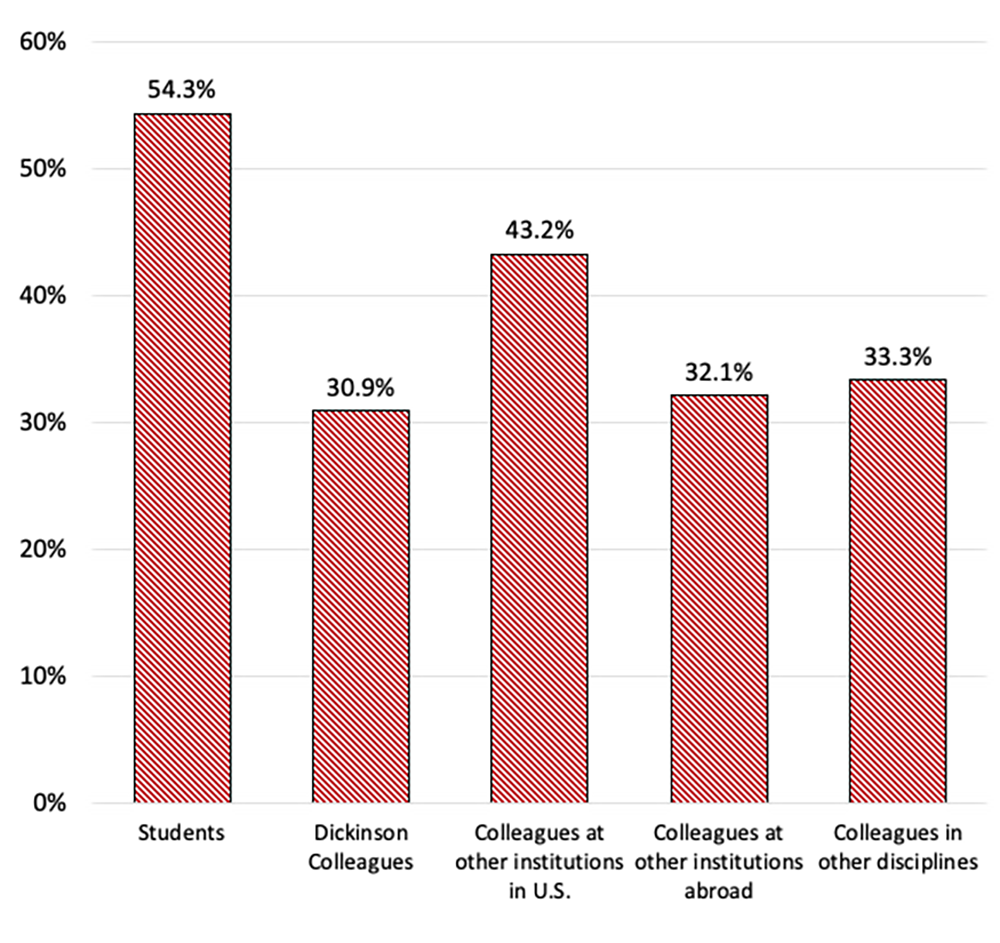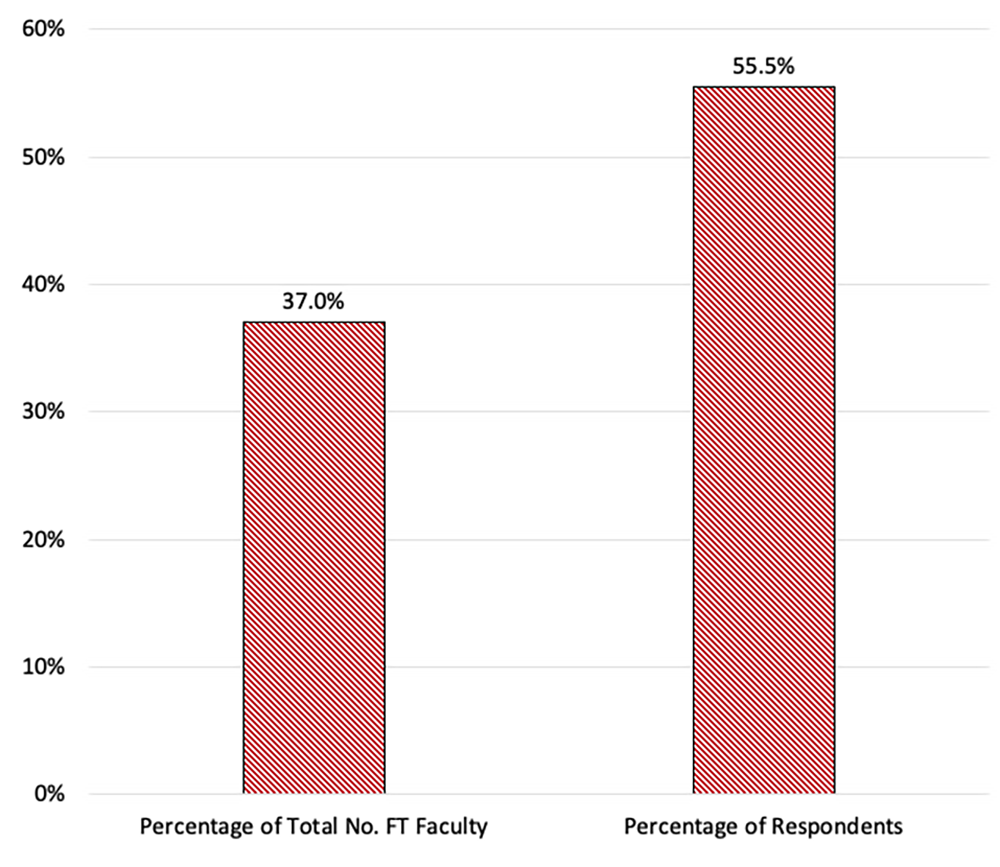Faculty Sustainability Research & Scholarship
Over 30 percent of Dickinson’s faculty members engage in sustainability-oriented research and scholarship, more than half of whom (54%) involve Dickinson students in their work. Many do this work in collaboration with other Dickinson colleagues (31%), scholars at other colleges and universities in the U.S. (43%), scholars from other countries (32%), and scholars with expertise in disciplines other than their own (33%).
With Whom Do Dickinson Faculty Members Engage in Sustainability-Oriented Scholarship?

Information about Dickinson faculty members’ sustainability scholarship was collected via a questionnaire that was sent to all 219 full-time Dickinson faculty members in January 2024. The questionnaire presented definitions of scholarship and sustainability-oriented scholarship. Scholarship was defined as research, writing, analysis, creative work, presentations, performances, and other scholarly activities that are relevant to faculty members’ academic disciplines and professional work. Sustainability-oriented scholarship is defined as scholarship for which any of the following is true:
- It explicitly addresses the concept of sustainability, OR
- It addresses the interdependence of ecological systems with social or economic systems, OR
- It addresses one or more major sustainability challenges.
Responses to the questionnaire were received from 146 faculty members, for a response rate of 67%. Eighty-one of the respondents reported that a significant portion of their scholarship is sustainability oriented. This represents 37% of all faculty members and 56% of faculty members who responded. Of those who reported that they engage in sustainability scholarship, 69 provided sufficient information to be included in Dickinson’s STARS report to the Association for Advancement of Sustainability in Higher Education (AASHE) and represent 32% of all faculty.[1]
Dickinson Faculty Members Who Engage in Sustainability-Oriented Scholarship

Faculty members who report engaging in sustainability-oriented scholarship have appointments in and affiliations with a wide range of academic departments. They include American studies, anthropology, art and art history, biology, chemistry, computer science, economics, English, environmental studies, French, geosciences, German, history, international business & management, math, music, physics, psychology, and many other programs. Topics of their scholarship that address sustainability challenges include climate change, climate change adaptation and resilience, ocean acidification, aquatic ecosystems, water pollution, habitat and biodiversity conservation, gender equality, social inequality, social justice, natural resource consumption, food security, food production, public health and access to healthcare, urban resilience, megacities, renewable energy, energy system transition, electric power reliability, natural hazards, and poverty alleviation.
Dickinson faculty members who engage in sustainability-oriented scholarship have appointments in and affiliations with a wide range of academic departments. Thirty-six academic departments have at least one faculty member who engages in sustainability scholarship, representing 86% of Dickinson’s 43 academic departments, giving evidence that sustainability research and other scholarship is thoroughly infused across Dickinson’s faculty and academic programs.
An inventory of the scholarly work of Dickinson faculty members that is sustainability oriented was created from the questionnaire responses. See the exciting sustainability scholarship of our faculty by downloading the inventory!
FACULTY SUSTAINABILITY RESEARCH AND SCHOLARSHIP INVENTORY (2024)
** 1) AASHE requires that information be provided about the topics of faculty members’ scholarship to be included in their metric of faculty engagement in sustainability scholarship. 12 respondents reported that a significant portion of their scholarship is sustainability oriented but did not answer questions about the topics of their scholarship. Consequently, the percentage of faculty reported to AASHE as engaged in sustainability scholarship is 32%.